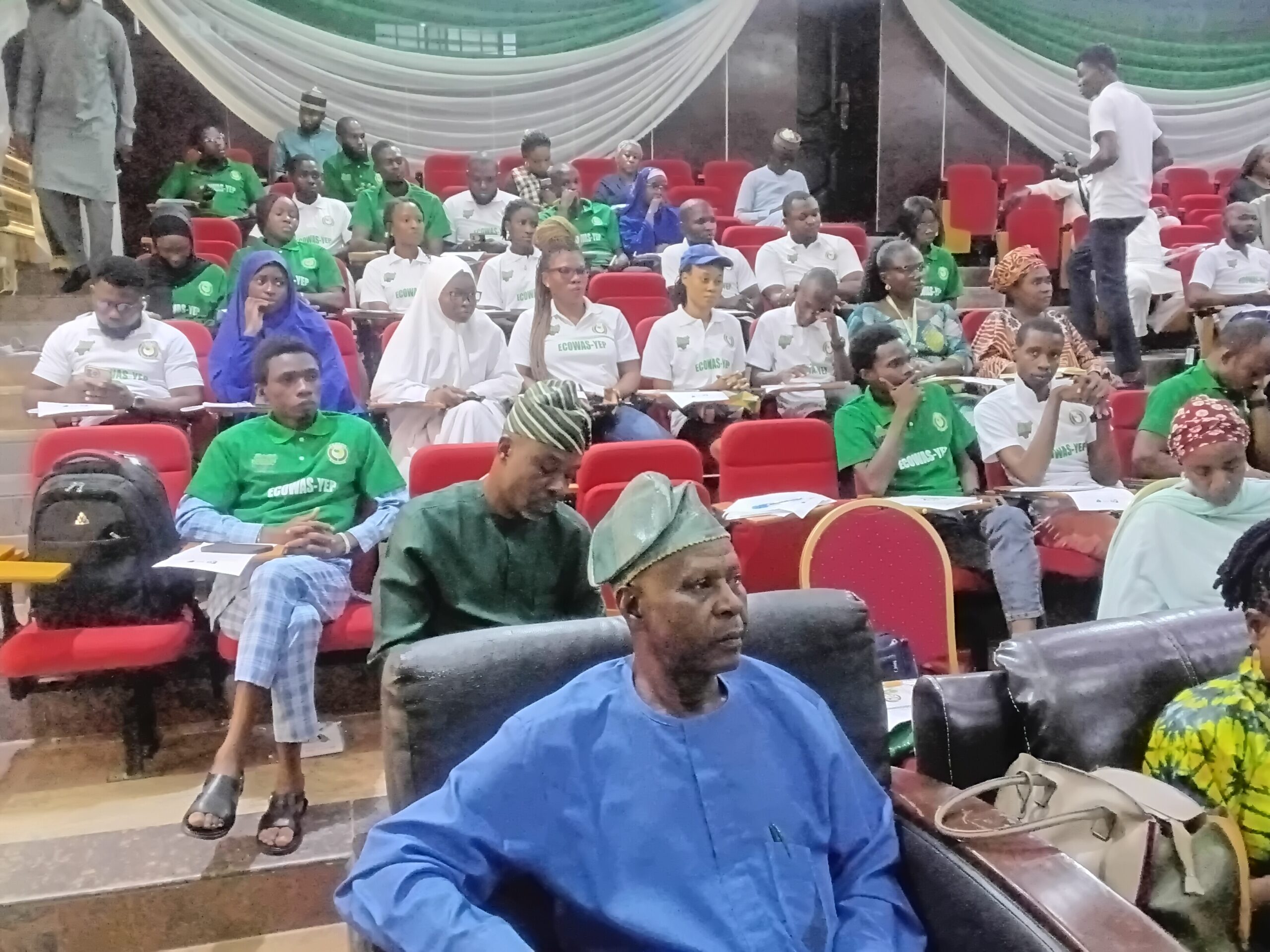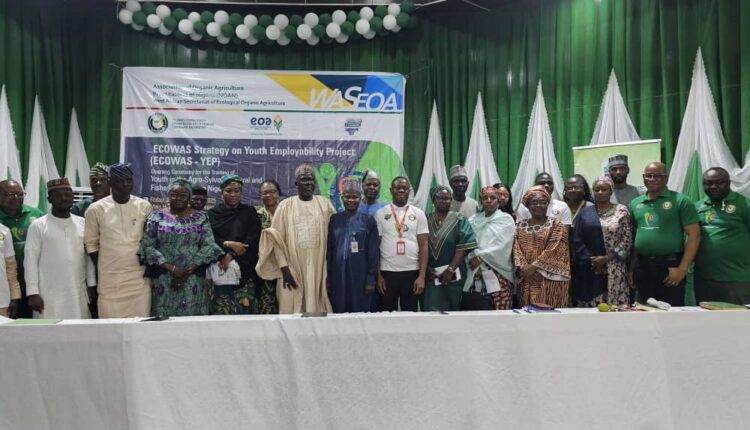Abuja Hosts ECOWAS-YEP Kickoff, Aims to Turn Agriculture into Youth Magnet
Nigeria on Friday formally launched the ECOWAS Youth Empowerment Project (ECOWAS-YEP), a regional initiative designed to tackle unemployment and food insecurity by equipping young people with practical skills in sustainable agriculture, livestock, and fisheries.
The opening ceremony, held at the Agricultural Research Council of Nigeria (ARCN), Abuja, brought together senior government officials, ECOWAS representatives, farmers’ associations, and development partners.
Declaring the programme open, the Minister of Agriculture and Food Security, Senator Dr. Aliyu Sabi Abdullahi, represented by his technical adviser, Mohammed Jobdi, described ECOWAS-YEP as a “historic milestone for Nigeria and West Africa.”

“This project is not just another training scheme. It is a strategic intervention to confront high youth unemployment, food insecurity, climate change, and the unsustainable exploitation of natural resources,” the Minister said.

He outlined Nigeria’s priorities under the programme, including: Expanding agroecology and organic agriculture to restore soils and open premium export markets, establishing agribusiness incubation hubs across all six geopolitical zones, scaling up eco-friendly aquaculture and fisheries to modernize production, strengthening livestock systems to reduce farmer-herder conflicts and promoting agroforestry, climate-smart agriculture, and nutrition-focused food systems.
Addressing participants directly, Abdullahi urged: “My dear Nigerian youths, this project is for you and about you. You are not just the leaders of tomorrow—you are the protagonists of today. With your creativity and resilience, you can make agriculture attractive, profitable, and sustainable.”
The President of the Association of Organic Agriculture Practitioners of Nigeria (NOAN), Prof. Jude C. Obi, said ECOWAS-YEP was “more than training—it is a movement to build a generation of digitally savvy, environmentally conscious, and business-minded agripreneurs.”
From over 14,000 applications, 300 youths were selected for the first training phase. Data showed: 62% are aged 26–35. 44.3% hold at least a bachelor’s degree. 66.9% already have prior agricultural training.
97.7% own smartphones or computers, a factor Obi said would boost digital learning and online agribusiness.
“Agriculture is no longer a fallback plan or a subsistence occupation. It is a pathway to innovation, entrepreneurship, and national prosperity,” Obi declared.
He added that many trainees were motivated by community impact rather than personal gain:
“They want to mentor peers, build cooperatives, and extend ecological farming practices to thousands more across Nigeria.”
The Commissioner of Economic Affairs and Agriculture of ECOWAS Mrs Massandje TOURE-LITSE, represented by Dr GLE Koffi Emmanuel, Rural Development and Land Gouvernance Programmes Officer, underscored the urgency of the initiative, noting that over 60% of West Africa’s 450 million people are under 30.
“This youthful energy can either become a ticking time bomb or the driver of prosperity,” he warned. “Three out of every four young people entering the labour market cannot find decent work. Through agriculture, we have the chance to change that.”
He said ECOWAS-YEP rests on six pillars: raising awareness of agricultural opportunities, vocational training, investment in youth-led enterprises, access to land and markets, settlement support, and agroecology promotion.
Between 2024 and 2025, ECOWAS allocated $2.38million in grants to training centres across member states, including Nigeria.
Two priority investments are already in motion: The Youth Employability Programme in agriculture and fisheries and the Local Milk Value Chain Programme to cut imports and create rural jobs.
“This is not just a ceremony,” Emmanuel told the gathering. “It is the start of a transformative journey. When we empower our youth, we are not only creating jobs—we are securing the future of Nigeria and West Africa.”
The Abuja inauguration saw pledges of collaboration from the Federal Ministry of Agriculture and Food Security, NOAN, and development partners. Organisers say the project will help stem rural exodus, reduce irregular migration, and position agriculture as a magnet for youth innovation.
For participants, the takeaway was clear.
“This training is your opportunity to rise,” Prof. Obi reminded them. “Step boldly into your role as Africa’s next agricultural leaders.”
With the roll-out of ECOWAS-YEP, Nigeria is set to take the lead in building a new generation of organic, technology-driven, and globally competitive farmers across the sub-region.

